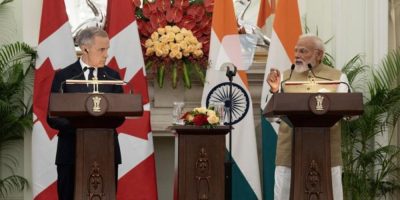The Federal Court has agreed to review the federal government's decision to mandate public servants return to the office three days per week.
The mandate, which is set to begin on Sept. 9, was made by the federal government in May to the ire of the union tasked with representing the workers.
The Public Service Alliance of Canada took its concerns to the Federal Court, which agreed to hear the case in a decision released Thursday.
Barrie's News Delivered To Your Inbox
By submitting this form, you are consenting to receive marketing emails from: Central Ontario Broadcasting, 431 Huronia Rd, Barrie, Ontario, CA, https://www.cobroadcasting.com. You can revoke your consent to receive emails at any time by using the SafeUnsubscribe® link, found at the bottom of every email. Emails are serviced by Constant Contact
“The Federal Court’s decision to hear our case is an important win for federal workers fighting for a fair and transparent approach to telework,” said union president Sharon DeSousa in a statement.
“Remote work is the future of work, and we won’t let the government off the hook for breaking their commitments and ignoring the voices of federal public service workers.”
The union says the hearing will be a "major step" for workers looking for transparency around the decision to return workers to the office.
In a statement, the Treasury Board of Canada Secretariat highlighted the judge did not endorse the union's argument in the decision, and that "the parties must argue this matter based on a full record.
"This decision means that PSAC’s application for judicial review will proceed to a hearing. This does not affect the decision on increased in-person presence," the statement says.
"Both parties will have an opportunity to present their arguments at a later date. In the interim, we are not in a position to comment further on this case while it is before the Court."
The union brought forward an application for judicial review in late May in an attempt to challenge the mandate.
In July, the Attorney General filed a motion to strike it on the grounds that it be dealt with through the union instead of the courts.




